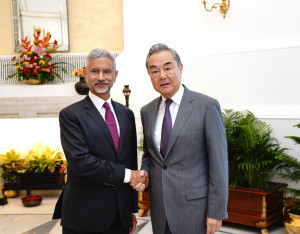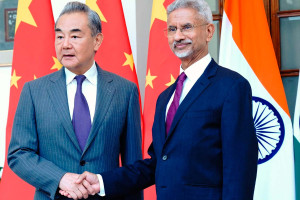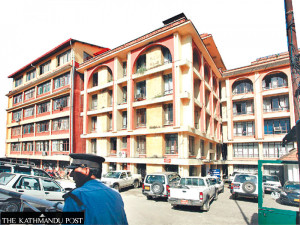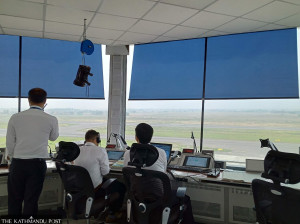National
MCA-Nepal condemns fake document on MCC circulating on social media
The office says there is no truth in the content and that it has taken initiative for action against it.
Post Report
The Millennium Challenge Account-Nepal said on Thursday that its attention has been drawn to a fake document circulating on social media regarding the Millenium Challenge Corporation Nepal Compact.
A document with the forged signature of Khadga Bahadur Bisht, executive director of MCA-Nepal Development Board, talks about a virtual meeting between MCC Vice President Fatema Z Sumar, US Ambassador to Nepal Randy Berry and MCC Deputy Vice President Jonathan Brooks.
The letter, dated August 20, 2021, also flaunts the stamp of Nepal coat of arms, MCA-Nepal and MCC.
The letter says the meeting had two suggestions–the US embassy needs to meet anti-MCC civil organisations and influential people; media and social media should be activated for MCC publicity; and sustainable but discrete campaign should be launched to support the MCC with the help of think tanks, journalists, television anchors and selected politicians, among others.
The document also claims that some newspapers, including the Post, need to be approached for the purpose.
The letter started to surface on social media on Wednesday, just before the MCC headquarters dispatched its clarifications to some of the concerns raised by the Nepal government and on the eve of US officials’ visit to Nepal.
The MCA-Nepal in a tweet said that the document is fake and has called for action against those behind creating and circulating such a fake document.
The document is, prima facie, fake, though. It describes the MCC as Millennium Challenge “Coperation”, instead of “Corporation”, with the wrong spelling of “Cooperation”
“Our attention has been drawn to a fake document, circulating on Twitter, with the fake signature of the MCA-Nepal executive director. We condemn the baseless and misleading message that the document contains,” said the MCA-Nepal on Twitter. “We are taking initiative with concerned authorities for action against this.”
Nepal signed up to the MCC in September 2017 and as part of the agreement, the country is to receive $500 million in grants, which will be used to improve transmission lines and the road sector. However, the MCC Nepal Compact has been embroiled in controversy, with political parties largely divided over its parliamentary ratification.
Misinformation regarding the MCC has reached even the grassroots level, with arguments, such as its endorsement would undermine Nepal’s sovereignty and invite American soldiers, rife.
In its 13-page response to the concerns sent by Nepal on September 3, the MCC headquarters on Wednesday provided pointwise clarification.
Regarding the concern, if the MCC agreement is above the Nepal Constitution, the MCC has said, “no.”
“The Constitution of Nepal prevails over the MCC Compact,” the MCC said in its response.
“Based on MCC’s experience in other countries, a compact’s status as an international agreement is critical to ensuring the implementation can proceed without delay, which is particularly important given the limited five-year implementation period of a compact,” the MCC said. “In practical terms, the status of an international agreement means that the implementation of compact projects will proceed in accordance with laws of Nepal except in rare instances where local law conflicts with a specific provision of the compact. In such a case, compact projects will be implemented according to the mutually agreed upon terms of the compact and the Constitution of Nepal.”
In response to the concern if Nepal is a member of the Indo-Pacific Strategy, the MCC has said the MCC Nepal Compact is not an agreement under it.
“MCC compacts are agreements between the MCC and the partner government,” said the MCC. “Any decision of Nepal regarding the Indo-Pacific Strategy is separate and independent from the MCC Nepal Compact.”
The MCC clarified that the Compact signed with Nepal is not an agreement under the Indo-Pacific Strategy. “The strong relationship between the United States and Nepal long pre-dates the Indo-Pacific Strategy,” the MCC responded.
On a key concern by Nepal regarding the basis for the claims that Nepal is not prioritised under a military strategy, MCC has said the US law that governs MCC prohibits the programme from using funding for any military purpose.
“The compact is explicit about this legal prohibition,” said the MCC. “Therefore, there is no connection between the MCC Nepal Compact and any military alliance or defence strategy.”
Sumar and Brooks arrived in Kathmandu on Thursday morning. They are scheduled to hold meetings with Prime Minister Sher Bahadur Deuba and other politicians, including KP Sharma Oli, chair of the main opposition CPN-UML.




 19.71°C Kathmandu
19.71°C Kathmandu
















